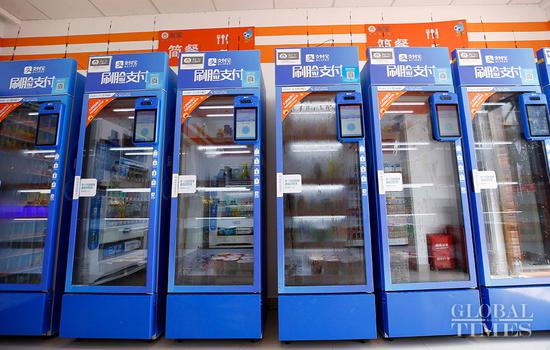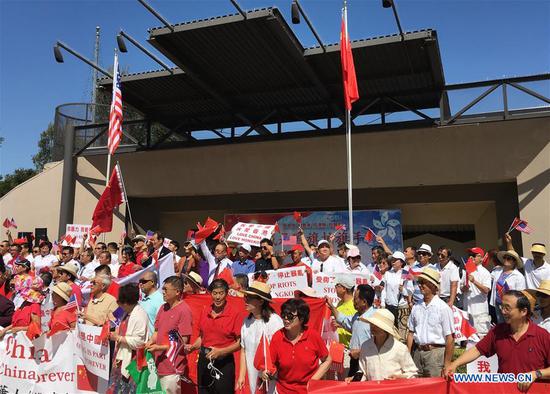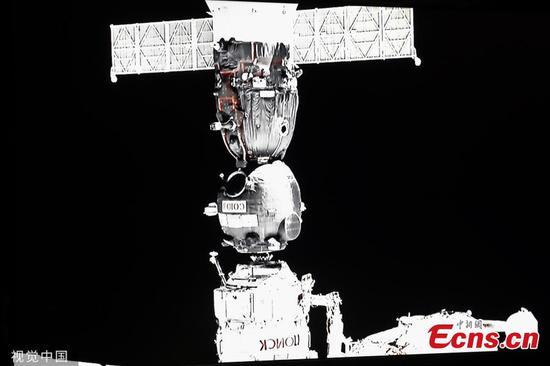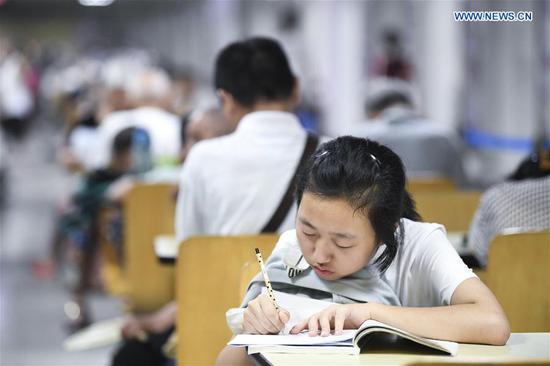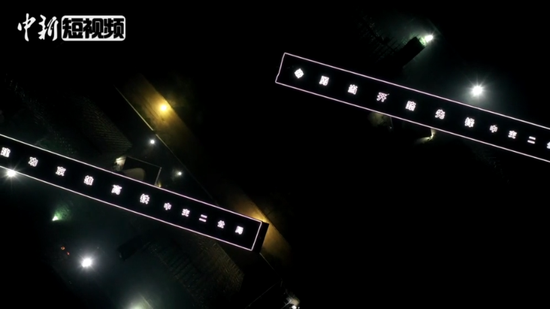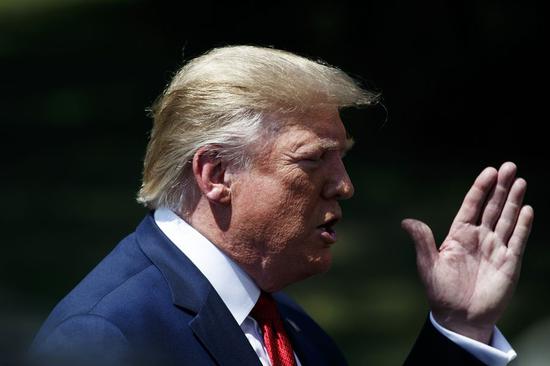
U.S. President Donald Trump speaks to reporters before leaving the White House in Washington D.C., the United States, on Aug. 21, 2019. (Photo by Ting Shen/Xinhua)
A former senior official of the U.S. Federal Reserve said Tuesday that the central bank should not provide offsetting stimulus to mitigate the damage to the U.S. economy done by the trade dispute with China, suggesting that doing so would possibly enable the U.S. administration to exacerbate the tension.
Bill Dudley, former president of the Federal Reserve Bank of New York from 2009 to 2018, wrote in an opinion piece published by Bloomberg News that U.S. President Donald Trump's trade war with China "keeps undermining the confidence of businesses and consumers, worsening the economic outlook" of the United States.
Calling the president's trade policy toward China a "manufactured disaster-in-the-making," Dudley, now a senior research scholar at Princeton University's Center for Economic Policy Studies, argued that the Fed should "refuse to play along" with Trump, rather than "mitigate the damage by providing offsetting stimulus."
That option, Dudley added, is aimed at the ultimate goal of a healthy economy, and should be seriously considered by the Fed.
While noting that conventional wisdom suggests that the Fed should cut interest rates in response to the escalating trade tensions between the world's top two economies, Dudley warned that such a monetary policy adjustment would possibly encourage "the president to escalate the trade war further" and increase the likelihood of a recession. Thus it not only is "merely ineffectual," but also might "make things worse," he said.
"Yet the Fed could go much further," said Dudley, who has also served as vice chairman of the Fed's rate-setting Federal Open Market Committee. "Officials could state explicitly that the central bank won't bail out an administration that keeps making bad choices on trade policy, making it abundantly clear that Trump will own the consequences of his actions."
Dudley said his advice for the Fed would benefit the U.S. economy in three ways: discouraging further escalation of trade tension with China, reasserting the Fed's independence that has already been under siege given Trump's repetitive interference, and avoiding further rate cuts when rates are already at historic low levels.
Fed Chairman Jerome Powell told a conference Friday that fitting trade policy uncertainty into the central bank's policy-making framework is "a new challenge."
"While monetary policy is a powerful tool that works to support consumer spending, business investment and public confidence, it cannot provide a settled rulebook for international trade," he said in prepared remarks to Kansas City Fed's annual symposium in Jackson Hole, Wyoming.
Dudley said he sees those remarks by Powell "a veiled reference to the trade war, and a warning that the Fed's tools are not well suited to mitigate the damage."
Reactions on Dudley's article appeared to be split, according to a follow-up report by Bloomberg, with some calling the former Fed official's remarks "not only misguided but also dangerous," and others saying he was "dead right."
Without taking a direct shot at Dudley's article, Trump, however, continued to display his longstanding dissatisfaction with the Fed by tweeting on Tuesday that the central bank has been "wrong for too long!"
The president has repeatedly demanded that the Fed cut rates aggressively, citing low rates currently adopted by other countries and even recommending an exact scale of the cut -- 100 basis points.
"The Federal Reserve loves watching our manufacturers struggle with their exports to the benefit of other parts of the world," Trump said in his latest attack on the institution. "Has anyone looked at what almost all other countries are doing to take advantage of the good old USA?"



















